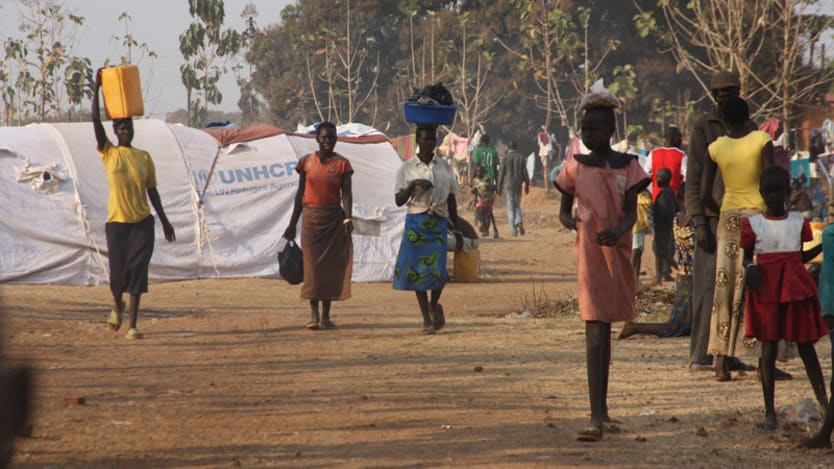Remote management is key to keeping aid workers safe in conflict areas

As tragedies like indiscriminate barrel bombings and the killing of 26-year-old Kayla Mueller in Syria remind us, we live in an era when aid workers on the frontlines face grave dangers.
Violent attacks on aid workers have increased sharply over the past two decades. In 2014, aid workers at nonprofits suffered 190 killings, kidnappings and attacks resulting in serious injury, according to the Humanitarian Outcomes Aid Worker Security Database.
Often the only way to keep staff, expatriates and local alike, safe in conflict and post-conflict areas is having expatriates manage aid activities from neighboring countries or regions while relying on local staff to deliver assistance. Managing programs remotely offers safety and security benefits, but it can also further complicate the Gordian knot of improving lives in areas smoldering with violence.
Some people argue that the global development community should not operate in areas so dangerous that they require remote management. Having worked with conflict and post-conflict countries for more than 20 years, I strongly believe that remotely managed development projects can and should seek to improve the lives of those directly impacted by conflicts. The key to both safety and success is to establish strong systems that make it possible to ensure local partners are getting results.
Below are three lessons I have learned from my experience working on remotely managed projects in some of the most fluid conflict and post-conflict environments in the world, including the Middle East, North Africa and Afghanistan.
1. Pick the right local partners to supply real-time information.
In conflict zones, iterative, real-time analysis of conditions on the ground is essential to designing and implementing effective aid programs. It is also indispensable to the safety of local and expatriate staff, even if they are operating outside the conflict zone. Build a network of locals from diverse socioeconomic, professional, geographical and ethnic backgrounds to help you paint a fuller picture of conditions on the ground. Leverage these various local perspectives, knowledge and personal networks to triangulate information and test your assumptions. Continually analyze factors like power and religious-cultural dynamics, based on frequent updates, so that you can adapt your implementation strategy as conditions change.
2. Invest in strong systems for implementation and, above all, security.
When implementing a program remotely, you have to rely on strong systems to coordinate many moving pieces safely without regular face-to-face interaction, such as grant-making, procurement and finance. Obviously, physical security is key, and staff should be trained in protocol. But IT security is just as important because hacking, whether from “hacktivist” groups, terrorist organizations or state agencies, represents a continual threat to the safety of aid workers and their local partners in some countries. Invest in these systems from the beginning to the end of the program, and know that your success or failure hinges largely on these systems.
3. Build multiple layers of monitoring.
One of the biggest challenges of remote management is verifying that local partners are using funds appropriately. To prevent fraud, do not rely on one source of verification. For example, your program has given a grant to a local organization to build a school. In addition to requiring the grantee to report on progress and send geo-tagged photos, monitor social media for photos or commentary about the new school. Hire and train locals to visit the site and report back. Contract with another organization with no direct stake in the school to conduct additional site visits. The more layers of verification, the better you will be able to safeguard donor or taxpayer dollars and ensure results for the people you are trying to serve.
The global development community will never be able to totally eliminate the risks of delivering aid to the world’s most dangerous places. By managing programs remotely in smart ways, however, we can minimize those risks while maximizing our impact on the men, women and children who need our assistance.
Conflict in Context is a monthlong global conversation on conflict, transition and recovery hosted by Devex in partnership with Chemonics, Mercy Corps, OSCE and USAID. We’ll decode the challenges and highlight the opportunities countries face while in crisis and what the development community is doing to respond. Visit the campaign site and join the conversation using #ConflictinContext.
Search for articles
Most Read
- 1
- 2
- 3
- 4
- 5








